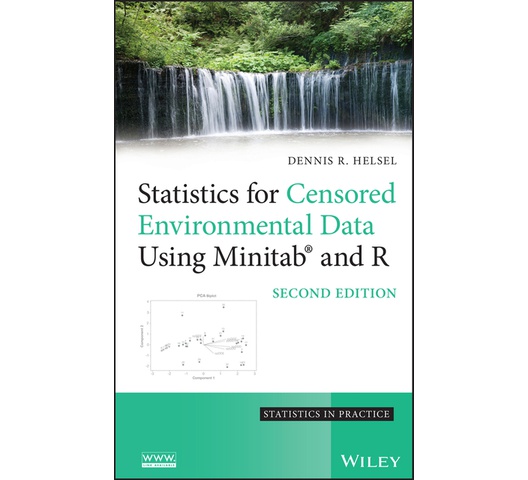
Statistics for Censored Environmental Data Using Minitab and R
Praise for the First Edition
" . . . an excellent addition to an upper-level undergraduate course on environmental statistics, and . . . a 'must-have' desk reference for environmental practitioners dealing with censored datasets."
Vadose Zone Journal
Statistics for Censored Environmental Data Using Minitab® and R, Second Edition introduces and explains methods for analyzing and interpreting censored data in the environmental sciences. Adapting survival analysis techniques from other fields, the book translates well-established methods from other disciplines into new solutions for environmental studies.
This new edition applies methods of survival analysis, including methods for interval-censored data to the interpretation of low-level contaminants in environmental sciences and occupational health. Now incorporating the freely available R software as well as Minitab® into the discussed analyses, the book features newly developed and updated material including:
- A new chapter on multivariate methods for censored data
- Use of interval-censored methods for treating true nondetects as lower than and separate from values between the detection and quantitation limits ("remarked data")
- A section on summing data with nondetects
- A newly written introduction that discusses invasive data, showing why substitution methods fail
- Expanded coverage of graphical methods for censored data
The author writes in a style that focuses on applications rather than derivations, with chapters organized by key objectives such as computing intervals, comparing groups, and correlation. Examples accompany each procedure, utilizing real-world data that can be analyzed using the Minitab® and R software macros available on the book's related website, and extensive references direct readers to authoritative literature from the environmental sciences.
Statistics for Censored Environmental Data Using Minitab® and R, Second Edition is an excellent book for courses on environmental statistics at the upper-undergraduate and graduate levels. The book also serves as a valuable reference for??environmental professionals, biologists, and ecologists who focus on the water sciences, air quality, and soil science.

Reviews
This product does not have any reviews yet.
Add your review
